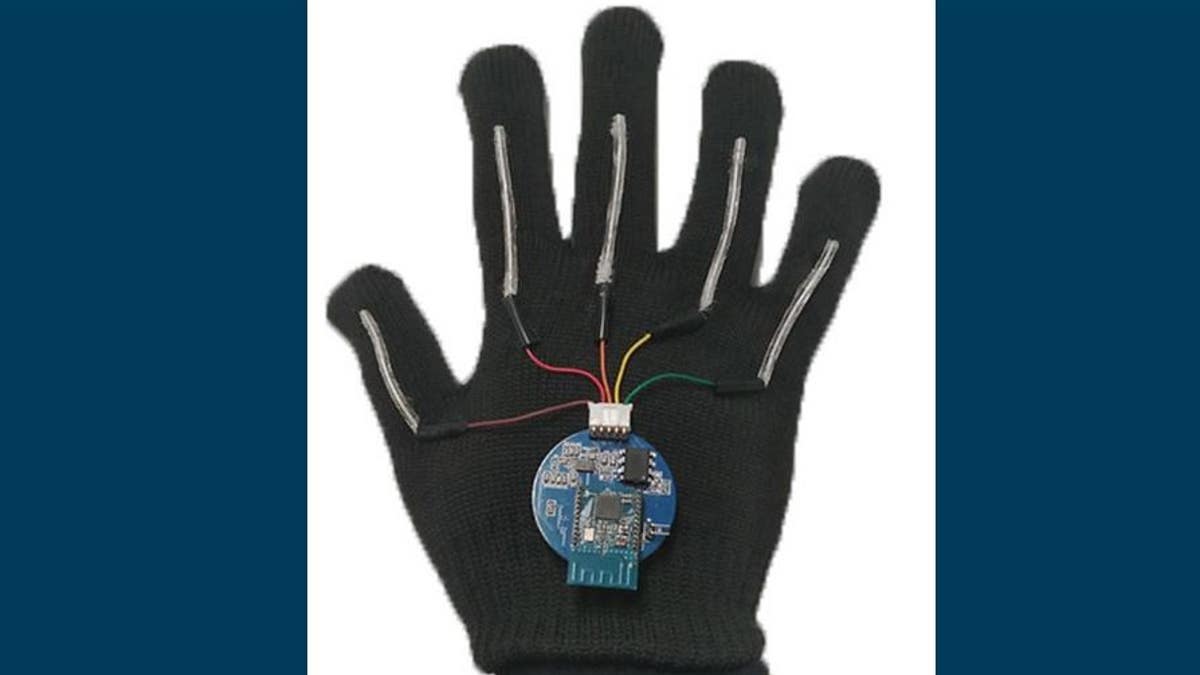Fox News Flash top headlines for July 2
Fox News Flash top headlines are here. Check out what's clicking on Foxnews.com.
Bioengineers at UCLA have designed a glove-like device that can translate American Sign Language into English speech in real time with a smartphone app.
According to researchers, the system includes a pair of gloves with thin, stretchable sensors that run the length of each of the five fingers. These sensors can identify hand motions and finger placements that stand for individual letters, numbers, words and phrases.
Those finger movements are turned into electrical signals, which are sent to a tiny circuit board on the wrist. The board transmits signals to a smartphone that then translates them into spoken words at a quick pace.
“Our hope is that this opens up an easy way for people who use sign language to communicate directly with non-signers without needing someone else to translate for them,” said Jun Chen, an assistant professor of bioengineering at the UCLA Samueli School of Engineering and the principal investigator on the research, in a statement. “In addition, we hope it can help more people learn sign language themselves."
AMID FACEBOOK BOYCOTT OVER HATE SPEECH, ADS FROM 530 BRANDS SET TO DISAPPAER FROM PLATFORM

The system includes gloves with thin, stretchable sensors that run the length of each of the five fingers. (Jun Chen Lab/UCLA)
COVID-19 PANDEMIC CAUSED 18 PERCENT SPIKE IN US DEATHS: STUDY
According to public health officials, between 100,000 and 1 million people use sign language in United States.
The researchers, who published their work in the journal Nature Electronics, also added adhesive sensors to testers’ faces — in between their eyebrows and on one side of their mouths — to capture facial expressions that are a part of American Sign Language.
However, some in the deaf community raised questions about the purpose and necessity of the invention.
"What inventions like signing gloves totally ignore is the fact that deaf people are the ones living these daily lives in the hearing communities the inventors try to serve," Julie A. Hochgesang, an associate professor in the Department of Linguistics at Gallaudet University in the Washington, D.C., who uses ASL, told CNN. "Deaf communities are heterogeneous in how people identify themselves. Inventions like signing gloves pigeonhole deaf people and put the communication burden on deaf people."
NETFLIX PLEDGES $100M TOWARD ECONOMIC INITIATIVES FOR BLACK COMMUNITIES
Gabrielle Hodge, a deaf post-doctoral researcher from the Deafness Cognition and Language Research Centre (DCAL) at University College London, told the news network that the innovation is "redundant" because deaf signers can use smartphone text-to-speech software or even pen and paper when they communicate.









































